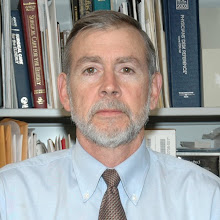Earlier this month the Maryknoll Society celebrated its 100th anniversary as a mission organization. Here in Cochabamba, Bolivia at the Language Institute Maryknollers celebrated that as well as the 60th anniversary of their mission work in Latin America. Lynn and I were able to attend two days of the festivities (speeches, focus groups, reflections on missiology, and of course, some feasting and dancing). One of our friends from the Maryknoll House in the Sopacachi District of La Paz, Michael Gillgannnon also made a presentation (he is now in the United States on a speaking tour) about the US role in Latin American politics and social change. It was wonderful to see the intensity of commitment among these people, some of whom have been living in Bolivia, dedicated to their mission work for decades. It also felt good to return to our alma mater where we had begun our first phase of in-country mission--learning Spanish--just a year and a half ago. We knew we were not as experienced in the field as many there, but we already had our own mission experiences to speak of, and the numerous Maryknollers of all ages welcomed us.
As lay missioners of Franciscan Mission Service, Lynn and I felt honored to help celebrate the Maryknoll Society's longevity. We understood from our participation that a part of achieving that longevity was the continuing renewal--within individuals, their communities, and their organizations--while remaining true to their values. We were also honored to participate in this renewal in a very special way. It was our privilege to present to the Cochabamba Maryknollers one more reminder of the mission spirit that first brought them to Bolivia. This was in the form of a picture of Mary of the Mountain that John Joseph (Jack) Higgins, a Maryknoll priest from our hometown of Nashville, Tennessee, had once given to his own mother while he was serving on mission in Bolivia.
Thursday, September 29, 2011
Sunday, September 11, 2011
Old Mission
 |
| Augusto Pinochet |
Regarding the presentation, I was amazed at the large number of people that turned out for the film on a mid-week night. The film may have been a for-credit assignment in the Sociology Department of San Simon University. I believe it was sponsored by the office of the Vice President of Bolivia. Regardless, despite a two-hour delay in starting (delays are common, I hear) the classroom was filled, additional seats were shoved in through a window aside the adjoining corridor, and people were leaning their heads in through the doorway to hear. 3 If the film were a register of anti-neoliberal policies and anti-capitalistic sentiment in the UK and US, citizens of those countries should be concerned about the extent to which those elements serve as their dominant representation in foreign countries.
__________
1 It is difficult for me to resume topics from an earlier blog post because by the time I sit down again I have other activities I want to write about or other work that must be done. However, maybe this will force me to be concise. Besides, I'm listening to Old Mission, a nice cut from the album Alone I Admire, by Auburn Lull.
2 A full-length copy of the movie The Shock Doctrine is available for viewing on YouTube. Also a shorter, Spanish-subtitled version is listed there.
3 I wish we could get this sort of turnout at the Filmanía series that Lynn and I are assisting with at the Pastoral Juvenil here in Cochabamba.
Monday, September 5, 2011
Anticipating Expanding a Few More Moments . . .
Saturday, September 3, 2011
Expanding moments
 |
| Edy Leonet, between bites of an ice cream bar as we take the tram up to see the Christ statue and the view of Chchabamba below |
When we were midway in the process of relocating to Cochabamba, in a minibus with Rhegan Hyypio, Hugh Smeltekop, and the remainder of our belongings from UAC-CP, we received a cellphone call that Edy had reached the interview stage. When we were beginning our search for a place to live in Cochabamba, we received a call from Edy himself he had been selected along with 35 other students from various countries to study English language in Philadelphia at Drexel University. Lynn and I thought he was a good choice because of his ability and enthusiasm. And last week, picking him up at the Cochabamba bus terminal after his experience in the US, we felt that our opinion was affirmed. He graduated beyond his first encounter experiences through media such as photos, film, and music. He seemed impressed by the cleanliness and the processes by which work can be accomplished efficiently. He did not return with a sense of rapture that everything is better in the US or that he should live there rather than in his own country. He seemed instead glad to be back, glad to be visiting friends--us and others he knows in Cochabamba--speaking both Spanish and English and moving comfortably through the culture.
It felt very good to see him again. It felt very good to see a young person work for something, achieve it, and not be disappointed by the result. We hope that Edy can use this for making his next steps toward completing his degree and that all of the other scholarship applicants will also find their opportunities.
Subscribe to:
Posts (Atom)

